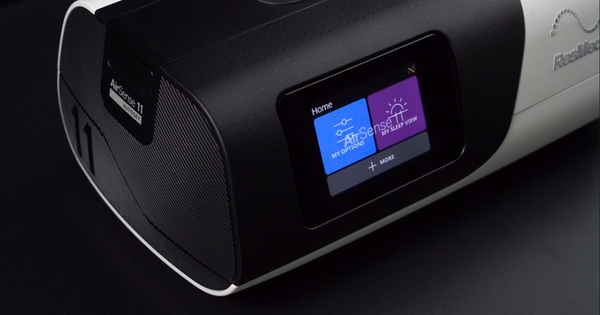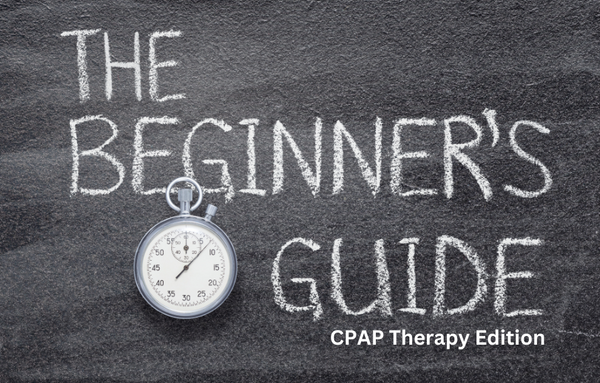CPAP Therapy for Older Adults: How It Benefits Them
January 22, 2020

Sleep is extremely important, especially as we age. It not only keeps our energy levels up and our mood elevated, but it also plays a key role in our overall physical and mental health.
A few sporadic nights of tossing and turning won’t do anyone any harm, but if it goes on for longer than a few nights, it can affect your health. There’s a clear link between our health and the quality of our sleep. Poor sleep on a regular basis is associated with chronic health conditions like high blood pressure, diabetes, and heart disease. The elevated risk factors for these serious diseases can lead to a shortened life expectancy.
One common culprit that often robs people of good-quality sleep is sleep apnea. This condition occurs when a person’s breathing stops and starts during sleep. It can be caused by a physical obstruction, which is the most common type, or because of signal errors in the brain that lead to minute pauses in breathing. These unique types are referred to as obstructive sleep apnea, and central sleep apnea. Fortunately, most cases of sleep apnea are treatable through lifestyle changes, as well as CPAP therapy.
Are We More Susceptible To Sleep Apnea As We Get Older?
Anyone, including children, can be diagnosed with sleep apnea. However, there are certain risk factors that make a diagnosis of sleep apnea more likely. Being older is a risk factor for both obstructive and central sleep apnea.
For obstructive sleep apnea, people who have a history of smoking or regular alcohol consumption or are overweight may find themselves at greater risk. That is because all of these factors affect the airways, which become overly relaxed and obstruct our breathing. If you’re diagnosed with mild obstructive sleep apnea, your doctor may recommend that you lose weight and quit smoking as soon as possible. Sometimes obstructive sleep apnea is temporary, caused by nasal allergies. In this case, treating the allergies themselves is the best way to improve sleep apnea symptoms.
In cases of central sleep apnea, advanced age is a risk factor, but it can also be triggered by health conditions like a heart disorder or a stroke.
How Does CPAP Therapy Benefit Older Adults?
If your sleep apnea is moderate to severe, your doctor may recommend CPAP therapy as an effective way to ensure a restful night’s sleep. CPAP stands for continuous positive airway pressure, and it uses a simple mask to deliver a steady stream of air through your nose while you sleep. Once you’ve fit the mask well and have gotten used to sleeping with the machine nearby, most people find that this treatment is the most effective in treating their sleep apnea.
There are many ways that CPAP therapy can benefit older adults who suffer from sleep apnea. Here are just a few of the ways that it can improve your life.
Improved Sleep
One of the most important aspects of investing in a CPAP machine is the increase in good-quality, restful sleep. People who have sleep apnea can wake up between 5 and 30 times every hour. Even if they’re not fully conscious when it happens, it still impairs the body’s ability to sink into the deeper phases of sleep that are rejuvenating and restful.
Getting a better night’s sleep will improve symptoms of daytime fatigue, boosting our ability to concentrate, think creatively, and perform the most basic daily tasks like driving and watching TV. As your sleep improves, you’ll likely find yourself less irritable, more patient, and less easily frustrated.
Better Cognitive Functioning
In addition to improving mood and overall physical health, getting more sleep will also help to improve your cognitive functioning. It’s extremely difficult to make good choices or engage in complex decision-making when you’re exhausted. The more your sleep apnea affects your sleep, the more likely it is that your decision-making capability and overall cognitive functioning will decline.
Sleep apnea can also affect our cognition by making us more vulnerable to anxiety, depression, and other mood disorders. These conditions can make everyday tasks seem insurmountable, and can be a major barrier to healthy social interaction. CPAP therapy can help improve these symptoms - in studies, patients saw a dramatic increase in their mood and cognitive-related symptoms as soon as the quality of their sleep began to improve.
Improved Cardiovascular Health
The key way that our sleep affects our cardiac health is through our blood pressure. Studies have shown that just one night of poor-quality sleep can cause blood pressure levels to rise in people who already have hypertension. Continued elevated blood pressure levels can increase our risk for heart disease and hypertension, even in otherwise-healthy adults.
People with obstructive sleep apnea are also at increased risk for major heart-related incidents like heart attacks, strokes, and atrial fibrillation. It’s extremely important to decrease these risks through regular CPAP therapy as soon as possible.
Best CPAP Masks To Use As An Older Adult
As an older adult with sleep apnea, it’s extremely important to manage it carefully to help decrease your risk for further health problems. If your sleep apnea is moderate to severe, CPAP therapy is a great place to start. Finding the right machine is important, but once you’ve gotten accustomed to a model that works for you, you’ll find your sleep is greatly improved.
The mask is a key element of the CPAP machine, and it may take some trial and error to find the right one. The best CPAP mask needs to cover your nose with no leaks, but shouldn’t be too tight, otherwise it can cause sores or bruises.
A design like the AirFit N20 offers magnetic clips, so you don’t have to fumble with small clasps in the dark. These smaller nasal masks are great for people who find full-face masks irritating or have particularly sensitive skin. These full-face masks are excellent for ensuring that the mask does not slip off or loosen during sleep.
Whichever mask you choose, you have the security of knowing that you’ve taken the first step in improving the quality of your sleep. At CPAP Machines, we take pride in helping all of our patients get a restful night’s sleep. Contact us for a free consultation to help you learn more about the benefits of CPAP therapy.
Share:
Leave a comment
Comments will be approved before showing up.



